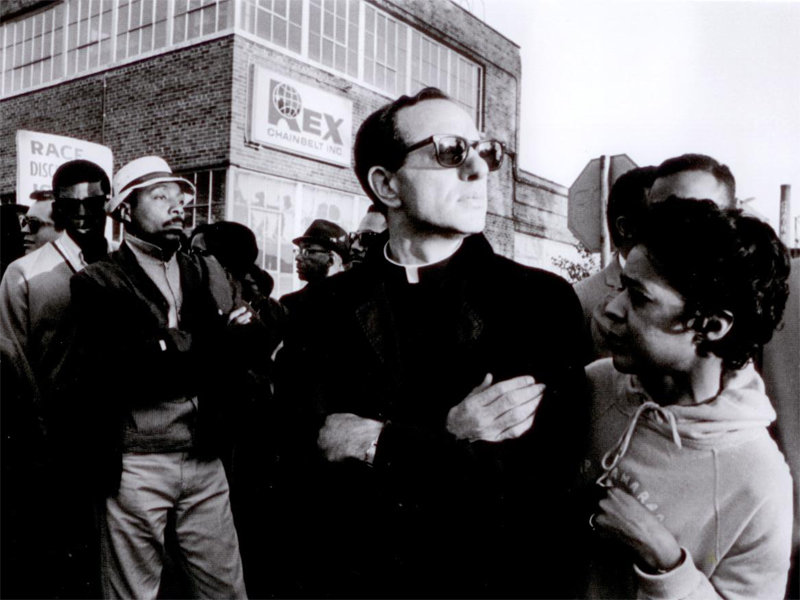Fifty years ago this week, Martin Luther King Jr. wrote his famous "Letter from Birmingham Jail," a document that became one of the most eloquent statements on civil rights for a generation.
King's letter is regarded as a brilliant essay about the need for non-violent social protest regardless whether it made some uncomfortable. At the time, King was responding to criticism from local clergy about the way he was organizing non-violent protests to challenge a culture of racism and brutality in Alabama. In his letter he also challenged the predominantly white clergy of the state to address daunting racial issues in their communities.
King was in jail on April 16, 1963 after being arrested for continuing to organize non-violent protests against the wishes of authorities. The letter, scribbled in the margin of a newspaper in the cell, was King's response to white clergy who had criticized his activism.
As it turned out, 50 years later most of those religious groups have realized King was right all along. Recently, the state of Alabama paid special tribute to the site of the jail where King wrote the letter.
King was on the right side of history but he was also right about much more than just Alabama's racial situation at the time. The reason "Letter from Birmingham Jail" is considered one of King's most significant pieces of writing is because of its timeless statements.
Like many others, I studied "Letter from Birmingham Jail" decades ago in college during various history and literature courses. Given the recent terrorist bombing in Boston and continuing political friction that often threatens to derail meaningful progress in 2013, I decided to re-read King's letter to appreciate exactly why it's considered so influential.
Some of the quotes seemed still relevant today in certain contexts. See if you agree:
"We know through painful experience that freedom is never voluntarily given by the oppressor; it must be demanded by the oppressed."
"I have consistently preached that nonviolence demands that the means we use must be as pure as the ends we seek."
"One has not only a legal, but a moral responsibility to obey just laws. Conversely, one has a moral responsibility to disobey unjust laws."
"So I have tried to make it clear that it is wrong to use immoral means to attain moral ends. But now I must affirm that it is just as wrong, or even more so, to use moral means to preserve immoral ends. "
This quote from King's letter is a personal favorite. I reminds me how his basic message was about people learning to live together peacefully and with mutual respect:
"Injustice anywhere is a threat to justice everywhere. We are caught in an inescapable network of mutuality, tied in a single garment of destiny. Whatever affects one directly, affects all indirectly."
Perhaps there's still time to learn from the man, 50 years later.
Eugene Kane is veteran Milwaukee journalist and nationally award winning columnist.
Kane writes about a variety of important issues in Milwaukee and society that impact residents of all backgrounds.





